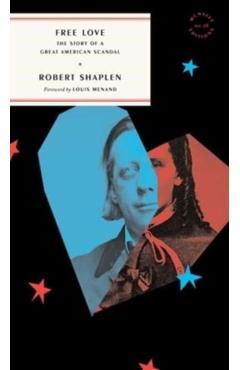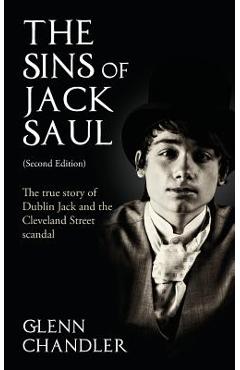The Scandal of the Century: And Other Writings, Hardcover/Gabriel Garcia Marquez

Detalii The Scandal of the Century:
elefant.ro
130 Lei
Carte straina
Knopf Publishing Group
The Scandal of the Century: - Disponibil la elefant.ro
Pe YEO găsești The Scandal of the Century: de la Knopf Publishing Group, în categoria Carte straina.
Indiferent de nevoile tale, The Scandal of the Century: And Other Writings, Hardcover/Gabriel Garcia Marquez din categoria Carte straina îți poate aduce un echilibru perfect între calitate și preț, cu avantaje practice și moderne.
Caracteristici și Avantaje ale produsului The Scandal of the Century:
- Departament: gaming-carti-birotica
- Ideal pentru pasionații de jocuri, birotică și distracție online.
Preț: 130 Lei
Caracteristicile produsului The Scandal of the Century:
- Brand: Knopf Publishing Group
- Categoria: Carte straina
- Magazin: elefant.ro
- Ultima actualizare: 13-05-2020 22:35:30
Comandă The Scandal of the Century: Online, Simplu și Rapid
Prin intermediul platformei YEO, poți comanda The Scandal of the Century: de la elefant.ro rapid și în siguranță. Bucură-te de o experiență de cumpărături online optimizată și descoperă cele mai bune oferte actualizate constant.
Descriere magazin:
Description"The articles and columns in The Scandal of the Century demonstrate that his forthright, lightly ironical voice just seemed to be there, right from the start. . . . He\'s among those rare great fiction writers whose ancillary work is almost always worth finding. . . . He had a way of connecting the souls in all his writing, fiction and nonfiction, to the melancholy static of the universe." --Dwight Garner, The New York Times From one of the titans of twentieth-century literature, collected here for the first time: a selection of his journalism from the late 1940s to the mid-1980s--work that he considered even more important to his legacy than his universally acclaimed works of fiction. "I don\'t want to be remembered for One Hundred Years of Solitude or for the Nobel Prize but rather for my journalism," Gabriel Garc a M rquez said in the final years of his life. And while some of his journalistic writings have been made available over the years, this is the first volume to gather a representative selection from across the first four decades of his career--years during which he worked as a full-time, often muckraking, and controversial journalist, even as he penned the fiction that would bring him the Nobel Prize in 1982. Here are the first pieces he wrote while working for newspapers in the coastal Colombian cities of Cartagena and Barranquilla . . . his longer, more fictionlike reportage from Paris and Rome . . . his monthly columns for Spain\'s El Pa s. And while all the work points in style, wit, depth, and passion to his fiction, these fifty pieces are, more than anything, a revelation of the writer working at the profession he believed to be "the best in the world."About the Author Gabriel García Márquez was born in Colombia in 1927. He was awarded the Nobel Prize in Literature in 1982. He is the author of many works of fiction and nonfiction, including One Hundred Years of Solitude and Love in the Time of Cholera. He died in 2014.

Produse asemănătoare

A Murder in Music City: Corruption, Scandal, and the Framing of an Innocent Man - Michael Bishop
![]() libris.ro
libris.ro
Actualizat in 28/10/2025
107.14 Lei

Free Love: The Story of a Great American Scandal - Robert Shaplen
![]() libris.ro
libris.ro
Actualizat in 28/10/2025
100.44 Lei

The Sins of Jack Saul (Second Edition): The True Story of Dublin Jack and The Cleveland Street Scandal - Glenn Chandler
![]() libris.ro
libris.ro
Actualizat in 28/10/2025
115.32 Lei

The Scandal of Redemption: When God Liberates the Poor, Saves Sinners, and Heals Nations - Oscar Romero
![]() libris.ro
libris.ro
Actualizat in 28/10/2025
66.96 Lei
Produse marca Knopf Publishing Group

New York: An Illustrated History, Hardcover/Ric Burns
![]() elefant.ro
elefant.ro
Actualizat in 28/10/2025
447.99 Lei

Objects of Desire: Stories, Hardcover/Clare Sestanovich
![]() elefant.ro
elefant.ro
Actualizat in 28/10/2025
187.99 Lei

Hearing Homer\'s Song: The Brief Life and Big Idea of Milman Parry, Hardcover/Robert Kanigel
![]() elefant.ro
elefant.ro
Actualizat in 28/10/2025
208.99 Lei

Vogue Living: Houses, Gardens, People: Houses, Gardens, People, Hardcover/Hamish Bowles
![]() elefant.ro
elefant.ro
Actualizat in 28/10/2025
649.99 Lei

National Audubon Society Pocket Guide: Constellations, Paperback/National Audubon Society
![]() elefant.ro
elefant.ro
Actualizat in 28/10/2025
48.1 Lei


